CIA Sponsored Terror, Civil Liberties, Gaza, Habeas Corpus, Human Rights, Military Tribunal, Political Prisoner, Prison Industry, Surveillance, Targeting Muslims, War Resister
Podcast: Play in new window | Download
Updates:
—–

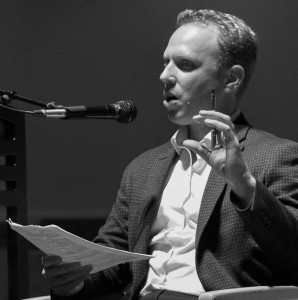
Goliath: Life and Loathing In Greater Israel: Max Blumenthal
Operation Cast Lead in 2008, is a starting point in the book Goliath: Life and Loathing In Greater Israel where award winning journalist and author Max Blumenthal shows the reader how a right wing government in Israel rose to power. His book takes hard look at Israeli authoritarian politics through a cross section of interviews from the homes of Palestinian activists to the political leaders behind the organized assault against civil liberties. Max gives readers a rare look into Israeli society that many will not write about.
Max Blumenthal:
- The first title was Master Race Democracy.
- Of course Israel is always portrayed in our media as this plucky little David surrounded by the Arab Goliath. Of course our reality is 180 degrees different.
- Matzpen warned that this would happen, they took a full page ad in Harretz saying we will become a police state and a nation of murderers.
- That’s where I come in to show that all of their darkest prophecies have been fulfilled and realized.
- I take you through Israeli society and through the key institutions of Israeli life to show how its playing out.
- From my time in Jerusalem where an anti miscegenation movement is burgeoning in the streets of Israel, leading mob attacks on young Palestinian men who are accused of making passes at Jewish women to the convention at the Jerusalem Ramada where key state Rabbis sit on a panel before right-wing settlers, including settler vigilantes leaders of the anti miscegenation movement defend a book, a guide on how and when its permissible to kill non-jews. A guide to genocide which is being distributed in Israeli Army units.
- Avigdor Lieberman is the man that basically promised to transfer 100s of thousands of Palestinians. He’s a rising force in Israeli society. It’s the youth whose hearts and minds they command.
- I take you into the Knesset to meet the younger legislators and the rising stars in Lieberman’s party and Netanhayu’s party who are far to the right of Netanyahu. Netanyahu really just commands the hollow center of Israeli politics.
- Rotem was great because he and other hard core right wingers have this whole philosophy of being dugri or straight. There was nothing I could say to shake him. He looks at me coming in at just another pathetic Jewish liberal who doesn’t really get what it takes to prevent a second holocaust and that’s what he said his goal was.
- It’s completely different from talking to a Republican in the United States who has to pander to some kind of civil rights sensibility.
- That’s another thing reviewers missed about my book is that I analyzed these key votes on major anti-democratic laws going back to 2009. Laws like the Nakba Law which basically criminalized observance of Palestine dispossession in 2008. Laws like the Acceptance to Community Law which legitimizes racial and religious discrimination for communities of under 500.
- These are laws that strip off the veneer of democracy and expose apartheid for what it is.
- It’s the right-wing that has captured the heart of Israeli society because they have the dynamism, they’re driving the agenda forward. (using a simple mantra – “finish 48”)
- In 1948 and actually starting in 1947, 750 thousand Palestinian Arabs were expelled to allow the creation of a Jewish state with a Jewish demographic majority, but many stayed behind. 20 percent of the state of Israel is non-Jewish Palestinian.
- They view Palestinian citizens of Israel increasingly as a fifth column, as a trojan horse for the Arab world, for Arab nationalism and Islamism.
- In order to become a citizen of Israel you have swear loyalty to the Jewish state and that applies to Palestinians in east Jerusalem.
- You will meet the people who are trying to push back inside Jewish-Israeli society on the pages of my book because they were my roommates, my friends. They took me to the flashpoints of ethnic cleansing and conflict.
- I would number 700 or less active left wingers who are actively leveling their bodies against the occupation and apartheid.
- The writings on the wall for these activists that there is very little room for them left in Israeli society.
- What they’ve (leftists in Israel) done is call to the outside. They’re calling to us. They organized around the boycott from within committee and they’re signing letters asking performers not to come to Israel. They’re signing letters calling on Americans to boycott their country.
- That is really where the activism of the radical left wing Israelis is going.
- The Jewish National Fund is supposed to operate within the Green Line only and is probably the leading Jewish non-profit in the world. It receives the most donations from diaspora Jews in the world.
- Steven Harper the Prime Minister of Canada recently spoke at one of their banquets. They’ve paid Bill Clinton hundreds of thousands to speak at their banquets.
- They are also the premier organization linked to the Israeli government involved in ethnic cleansing and crimes against humanity.
- It’s something we talk about a lot. How Zionism is trying to capture Judaism and change what it means to be a Jew and declare us to be who are not only not Zionists but object to this redefinition of Judaism and cast us out and declare us to be anathema.
- You can see it in my video Feeling the Hate where I go to the heart of Jerusalem and meet American Jews from around the country and they line up around my camera the night before Barack Obama’s historic address in Cairo.
- Zionism is attracting those who are magnetized by the kind of bellicose identity that it requires and is repelling anyone who has any liberal sensibility or at least throwing them into a moral crisis.
- I showed up as # 9 on Simon Weisenthal Center’s list of anti-Israel, anti-semites and they called me an anti-semitic Jew, not even a self-hating Jew but a Jew who hates Jews.
- I was tied with Alice Walker by the way.
- They literally count the calorie of each Gaza resident with complex mathematical formulas.
- Barack Obama has never challenged the idea of holding 1.8 million under siege because they possess the wrong ethnicity.
- When a situation like this is taking place and expanding as Jeff Halper from the Israeli Committee Against Home Demolitions says into a “global Gaza” where the techniques that have been used to control people in the Gaza Strip are literally being exported because Israel is the only country that has the ability to basically lab test such a regime of domination.
- That’s very appealing to people in the United States, the Department of Homeland Security, to private prison companies like CCA.
- Twitter – @maxblumenthal
Guest – Max Blumenthal, an award-winning journalist and bestselling author whose articles and video documentaries have appeared in The New York Times, The Los Angeles Times, The Daily Beast, The Nation, The Guardian, The Independent Film Channel, The Huffington Post, Salon, Al Jazeera English and many other publications. He is a former Puffin Foundation Writing Fellow for The Nation Institute. His book, Republican Gomorrah: Inside The Movement That Shattered The Party, is a New York Times and Los Angeles Times bestseller.
———————
Civil Liberties, Habeas Corpus, Human Rights, Political Prisoner, Supreme Court, Surveillance, Truth to Power, War Resister
Podcast: Play in new window | Download
Updates:
—–
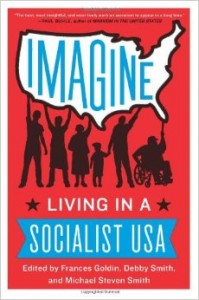
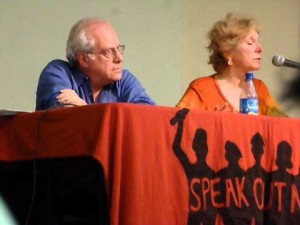
Imagine: Living in a Socialist USA
We continue to discuss the essays within the anthology Imagine: Living In A Socialist U.S.A. assembled and edited by our own co-host Michael Steven Smith, his wife Debby and Frances Goldin. Some of the most prominent activists, artists and experts have given their perspective about how the United States could exist as a socialist society. We’re joined today by Harriet Fraad, a hypnotherapist & psychotherapist in Manhattan. She is a contributor to the book with her essay Emotional and Sexual Life in a Socialist America written with Tess Fraad Wolff. Professor Rick Wolff joins us as well, we talk with him about his essay in the book titled The Shape of A Post-Capitalist Future.
Professor Rick Wolff:
- The willingness to ask the question. Can we do better than capitalism is what was the unifying theme across all these audiences. (regarding recent speaking tour) I think it should give encouragement and heart to everybody listening to this program, to understand how profoundly the wind has changed culturally, and ideologically and philosophically in the United States.
- Capitalism is generating its own critics, its own opponents at a breath taking rate.
- The way to get those people to rethink what socialism means is to revive parts of socialism that have gotten lost over the last century but I think now need to be put in the foreground.
- That’s how its going to change your daily life.
- What I concentrated on in the article is what would it mean if the place where people spend most of their adult life – at work – five out of seven days, best hours of each of those five days, you’re in your work place.
- Let’s talk about what socialism would mean differently from the way capitalism organizes it.
- In a capitalist workplace what most Americans have to face is that its a stunningly undemocratic arrangement.
- How about we democratize the work place? How about we bring democracy to the place it should have been introduced first in our society’s history, if we’re democratic, rather than last.
- That the workers should decide in assemblies, what to produce, how to produce, where to produce and what to do with the profits that after all, all the workers helped to produce.
- The major source of inequality of wealth is how businesses their net income. Their profits. Who gets them?
- They give their top official 200 hundred million dollar bonus packages, 50 million dollar bonus packages and what they don’t give to their top executives they pay out in dividends to their shareholders.
- 5 percent of the shareholders own 80 percent of the shares. If you distribute to shareholders, to distributing to unequal distributions of wealth.
- Socialists want those decisions to made democratically, by all the workers.
- If the workers together made the decision on how to distribute the profits they all helped to produce, you think they would give millions of dollars to a few top executives, while everybody else has to borrow money to send their kid to college.
- I want people to imagine how much better life would be if you handled the organization and the decision making in the enterprises of this society.
- This isolation that Harriet spoke of so movingly is catastrophic politically as long as we all act individually. We have to face and recognize that there are millions of people that want to go beyond capitalism.
- The first order of business is to bring them together in union and solidarity. They can have an impact on this society far beyond what they can achieve individually.
- I also work at being honest in not knowing how best to get people to be together and function together.
- If we could begin to mobilize. . .its important to understand that many of the ideas in this book are already majority points of view.
- When you go to work for another person in a capitalist system, an employer, and you sit down and you work out what you will do and you also work out what that employer will pay you.
- You know that the following is true. The only reason that employer will ever give you 20 dollars an hour is that during that hour, your brains and your muscles produce more than 20 dollars worth of stuff for that employer to sell. The employer will only give you 20 if he gets from you more than 20.
- That is a fundamentally unequal relationship.
Guest – Rick Wolff is Professor of Economics Emeritus, University of Massachusetts, Amherst where he taught economics from 1973 to 2008. He is currently a Visiting Professor in the Graduate Program in International Affairs of the New School University, New York City and directs the website Democracy At Work. Rick hosts the syndicated radio show Economic Update broadcast out of WBAI 99.5 FM.
——
Dr. Harriet Fraad:
- For most people, what they’re aware of is, unemployment is crushing their future or their present but they’re unaware that its crushing their personal lives as well.
- The first thing about capitalism is that what matters is profit.
- In order to profit, companies have outsourced American’s livings. From everything to manufacturing to accounting where you could fax the materials over to India where they speak English or law in terms of writing a brief, can be outsourced.
- People have been utterly looted in their personal lives because of only being a cipher on a profit ledger, not a person.
- 80 percent of the jobs that were lost during the recession were “male” jobs, in manufacturing, or construction which is often prefab or farmed out or jobs that require physical strength, that’s not really required anymore.
- There are two basis for male identity in the United States. One of them is having bread earner role and the other is having a loyal sexual partner and wife, and they’re both out the window.
- 70 percent of divorces are now initiated by women. Women are refusing to get married in the first place.
- Men are being rejected by women and by jobs.
- A lot of manhood has to do with pride, which in the United States has been replaced by shame. Shame is something the Republicans try to cultivate in anyone who doesn’t have money.
- The shame of not being a real person cause you can’t go out and buy stuff.
- The shame in not being able to support a wife and children. Shame easily leads to violence.
- Men have been rejected and are furious and don’t understand that its capitalism that has disempowered them.
- Americans don’t have the benefits of after school care, quality, free health care.
- People are disempowered and confused. Women don’t want to take care of men who won’t be able to support them and still demand full emotional and sexual services as well as child care.
- The biggest increase in married couples are couples that don’t have children. The biggest increase in households are single person households. People are alone.
- If you’re poor and alone, you can hang out at the mall and get arrested.
- People haven’t made the connection. Hey, honey its capitalism, nothing personal.
- They feel its their personal loss, which is why Americans which are 6 percent of the population of the world take 60 percent of the psych drugs.
- Porn which is often impersonal and degrading to women – hetero porn, is the way kids get sex education here. Porn is so profitable.
- The whole idea that the most important thing is connection is a socialist value. It’s all of us together. What we have is our majority and our connection that keeps this world going, rather than capitalists and their money to which we should all pay and obey.
- Americans at the point where they know this is an unjust system but they’re not quite at the point where they can say, and I will do something about it.
- You need to be willing to join with other people. That’s the primary thing.
Guest – Dr. Harriet Fraad, a hypnotherapist & psychotherapist in Manhattan. She is a contributor to the book with her essay Emotional and Sexual Life in a Socialist America written with Tess Fraad Wolff.
——————————————————————————-
Imagine: Living in a Socialist USA
CIA Sponsored Terror, Civil Liberties, Criminalizing Dissent, Habeas Corpus, Human Rights, Political Prisoner, Surveillance, Torture, War Resister
Podcast: Play in new window | Download
—–
Imagine: Living in a Socialist USA
—–

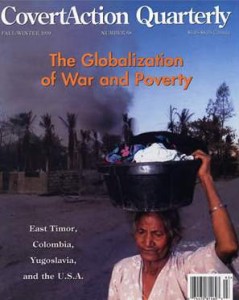
Lawyers You’ll Like: Attorney Bill Schapp
Attorney William Schaap graduated from the University of Chicago Law School in 1964 and has been a practicing lawyer since. Bill specialized in military law and practiced in Asia and Europe. He later became the editor in chief of the Military Law Reporter in Washington for a number of years. In the 70’s and 80’s he was a staff counsel of the Center for Constitutional Rights in New York City. In the late 80s, he was an adjunct professor at John J. College of Criminal Justice of the City University of New York where he taught courses on propaganda and disinformation.
Attorney William Schapp:
- One of first cases at this big Wall Street firm, they had some outside counsel working on it, one of whom was David Lubel, and Dave Lubel who had I think been a recruiter for the Communist Party in his youth, was always good at spotting somebody who was always worth recruiting and he started to tell me there was this convention of this lawyers group.
- It was this 1967 Lawyers Guild Convention in New York. He dragged me to one event, I met Bill Kunstler, I met Arthur Kinoy, I met Victor Rabbinowitz. I’d been on Wall Street for a year or two, I said I didn’t know there were lawyers like this.
- I joined the same day and met Bernadine Dorhn and a few weeks she called me and said we need your help.
- She said you gotta defend a bunch of Columbia students. The next thing I knew the riot started at Columbia and she said you have to go down there and defend them.
- I signed up to be staff counsel on the National Lawyers Guild Military Law Project in Okinawa, Japan.
- When you work overseas in that kind of a climate with the military you learn a lot fast about American imperialism.
- Once you learn that, you learn about the CIA.
- That led us to originally working on Counter Spy magazine and then on Covert Action Magazine.
- The original purpose was to expose the CIA. We worked with Lou Wolf who is an expert in uncovering CIA agents in US embassies, not through any classified documents but because if you knew how to read the paperwork and State Department things, you could tell who are the “ringers.”
- We were so successful that Congress passed a law against us.
- Our goal was to make these people ineffective because the only way most CIA could work, particularly the ones that were assigned to an embassy was to have to pretend to be something else.
- They were all third assistant political secretaries and those were all phony things. Their job was to finagle their way into various community organizations in whatever foreign capital they were posted to recruit people to turn against their own countries and become traitors to their own countries, to become spies for the U.S.
- We thought if we identified these people, it might make their job a little bit harder, which it did.
- Of course, the problem with that is the government said we were trying to get them killed which we weren’t trying to do and nobody we did expose ever did get killed.
- He (Philip Agee) had been an adviser to Counter Spy. Counter Spy folded when Welch got killed, cause the pressure was too much and started Covert Action Quarterly.
- He was not the person discovering who the under cover people were, Lou Wolf was doing that.
- Phil wrote articles for us in every issue and we worked very closely with him.
- Once you start exposing these things, they really don’t have any defense.
- They tried to catch us in something phony. We would get tips that would turn out to be CIA trying to get us to print some story that wasn’t true so they could then discredit us.
- We had more interference from the government when we were doing military law work, before Covert Action Quarterly.
- They would plant bugs in our attic in Okinawa, things like that.
- The Intelligence Identity Protection Act has 2 parts. One makes it a crime for someone in the government who has classified information to reveal someone’s identity. The second part makes it a crime to reveal the identity of someone you did not learn from classified information or you position. (But if you were in the business of exposing these people . . .)
- Regarding his newsletter The Lies of Our Times – It was in the 90s, from 1990 to 1995 I think. To a certain extent, the abuses we were crying about got a little bit less over time because that’s sometimes the helpful result of that kind of exposure.
- We were just tired of people thinking that if it was in the New York Times it must be true.
- The fact is that those people lie all the time.
- I think we’ve gotten to a point where people recognize that the government lies to them and that there’s an awful lot that goes on that they don’t know.
Guest – Attorney William Schapp graduated from the University of Chicago Law School in 1964 and has been a practicing lawyer since. Bill specialized in military law and practiced in Asia and Europe. He later became the editor in chief of the Military Law Reporter in Washington for a number of years. In the 70’s and 80’s he was a staff counsel of the Center for Constitutional Rights in New York City. In the late 80s, he was an adjunct professor at John J. College of Criminal Justice of the City University of New York where he taught courses on propaganda and disinformation.
In addition to being a practicing lawyer, Bill was a journalist, publisher and a writer specializing in intelligence as it relates to media. He was the co-publisher of a magazine called the Covert Action Quarterly for more than 20 years. He also published a magazine on propaganda and disinformation titled Lies Of Our Times. Attorney Bill Schapp has written numerous articles and edited many books on the topic of media and intelligence.
———-

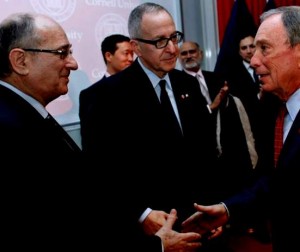
A Panel Discussion: Militarizing, Domestic Spying, and the Boycott of Israel
We hear a presentation by David Swanson with the (New Yorkers Against the Cornell-Technion Partnership – NYACT) presentation. David Swanson is working to organize a movement to end war at WorldBeyondWar.org. His books include “War Is A Lie.” He blogs at davidswanson.org and warisacrime.org.
Recorded by Deep Dish TV
———————————————————————–
CIA Sponsored Terror, Civil Liberties, Criminalizing Dissent, FBI Intrusion, Guantanamo, Habeas Corpus, Human Rights, Iraq War, Political Prisoner, Prison Industry, RFID, Supreme Court, Surveillance, Targeting Muslims, Torture, War Resister
Podcast: Play in new window | Download
Updates:
——–

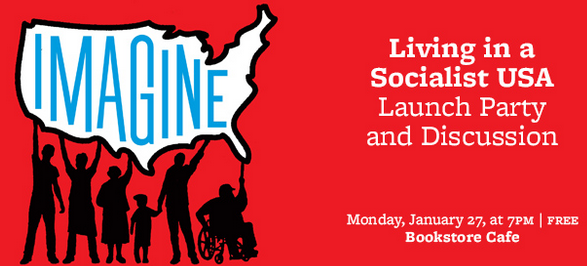
Imagine: Living in a Socialist USA-Frances Goldin, Michael and Debby Smith
Our own co-host Michael Smith, his wife Debby and Frances Goldin have assembled and edited an anthology of powerful essays titled Imagine Living In A Socialist USA. Prominent thinkers, activists and artists have given their perspective of what the United States would look like through the lens of a socialist society. This new work is an important contribution to what we hope will be a broader movement. It includes an indictment of capitalism, an alternative U.S.A. and how to get there.
Frances Goldin:
- It was my brainchild because I wanted to accomplish 3 things before I joined by ancestors. One is everyone who lived in Cooper Square who had been fighting Robert Moses and saving their old tenements since 1959 its been a tremendous long struggle.
- This is the only community land trust in the Northeast. The only one.
- The next one is that I was really distressed at the direction our country was moving. Here I am 89 years old and all of a sudden North Carolina says that we’re going back to the old days where you had to bring in your right arm and read the Constitution without missing a word in order to vote. That plus spying on every American and continuing the wars.
- It was just breaking my heart. I was very distressed that everybody thought that socialism was a dirty word, it was an undemocratic terrible way of life and they just didn’t have a clue as to what it really meant.
- I thought it would be a great idea to pull together some of the greatest minds in the country and let them talk about health, education, welfare, homosexuality, every subject that effects American’s lives and explain how it would be different under socialism if it were democratically done, which is the only way it should be done.
- Within one year, 31 leading brains in the United States for no charge, they did it free, wrote their essays on each one of these subjects. The book is in my hand, its finished and its beautiful and it makes me so happy. That’s my second accomplishment.
- The third one is to see one of the leading intellectuals in the world free, forever free. Mumia Abu-Jamal.
- I couldn’t do it alone, it was a great plan and so I leaned on to dear friends, Debby and Michael Smith.
- I had to force Harper Collins into this, they really didn’t want to do it.
- We were very lucky to hire an incredibly good editor, whose livelihood was editing for magazines and newspapers. If a sentence was too long, he cut it into 2 or 3 sentences.
- Right now, the word socialism, people think of dictatorship, they think terrible things, they think undemocratic.
- This is a simple instruction about how it would effect us with regard to health, education, housing, welfare, all of those subjects which make it so difficult for all of us to live.
- It can’t be a dirty word, it happens to be the most democratic way of governing possible.
- Get the workers to run the company. It’s happening in Spain, with dozens of corporations that have become worker owned.
- It’s going to be the workers dividing the profits among themselves.
- It will only happen when the workers are angry enough and informed enough to know that they can run the show.
- Every penny of the royalties will go to free Mumia Abu-Jamal
- We are not earning one dime from this book. It was a labor of love. It was a labor of activism.
- It was a labor to change the world and make it a better place.
Guest – Frances Goldin is the President & Principal of Frances Goldin Literary Agency. Frances has worked in publishing for 63 years, as an agent and as editor-in-chief of a children’s publishing company; she founded the Frances Goldin Literary Agency and sold her first book in 1977. Authored by Black anthropologist Betty Lou Valentine and titled Hustling and Other Hard Work, the book continued to receive royalties for 32 years. One of the agency’s strengths is that many of its books continue to earn royalties long after publication. Reflecting Goldin’s radical politics, the Agency concentrates on literary fiction and serious, controversial, progressive non-fiction.
—–
Attorney Michael Smith:
- I don’t think its a dirty word, because people see what’s going on under capitalism and they don’t like it. The economic situation in this country ain’t gonna change, its only going to get worse.
- Frances is quite an influential literary agent in this country.
- What’s your definition of socialism? I said a democratic economy and political system, both where people from the bottom up control how we make a living, and how we live.
- We’re having a book launch on January 27. It’s at 126 Crosby Street in SOHO at the book store called Housing Works.
- In order to achieve the kind of socialism we’re talking about and that’s socialism from the bottom up you need a broad democratic movement of people.
- All the left wing parties, all the movement groups, we gotta get together around a common program.
- One of the chapters that I really like, and this isn’t to flatter you Michael Ratner, but you wrote a chapter on what I would do if I was US Attorney General.
- Paul LeBlanc writes his chapter about the 3rd American revolution. Diane Feeley writes about that in her chapter. She’s an auto worker retired from Detroit.
- Michael Zweig, the great sociologist, we reprint his speech from Occupy Wall Street where he talks about the 1 percent, the ruling class.
- He says actually its 1/10 of 1 percent. Those are the people who are the top of the economy and different organizations in this country. He said, you gotta be very careful, because these people will kill ya.
- In the second part of the book, we emphasize use your imagination. How do we organize the economy democratically?
- How do you organize a corporation democratically? Rick Wolff wrote that chapter.
- There are 31 chapters in the book. The last chapter suggests itself. How do we do it?
- We’re not against leadership, we’re against undemocratic leadership but you need people who’ve had some experience and who can draw the lessons of the past.
Guest – Attorney Michael Smith is co-host of Law and Disorder, and a New York City attorney and author. His most recent book, written with Michael Ratner , is Who Killed Che? How The CIA Got Away With Murder. He is on the boards of the Center for Constitutional Rights, and the Brecht Forum. He was educated at the University of Wisconsin in the 1960s, where he learned social history from the great teacher Harvey Goldberg. He has testified on Palestinian rights before committees of the US Congress and the United Nations.
Guest – Debby Smith is a long time socialist since going to college in Boston during the radical sixties. Debby worked full-time for the anti-Vietnam War movement, the Kent State Legal Defense Fund and in the feminist, union and socialist movements. She is also the wife of Michael Smith and participates in the anti-capitalist and pro-democracy movements that are growing rapidly in the United States and worldwide.
————————————————————————————————————
Civil Liberties, Criminalizing Dissent, FBI Intrusion, Habeas Corpus, Human Rights, Political Prisoner, Prison Industry, Supreme Court, Surveillance, Truth to Power
Podcast: Play in new window | Download
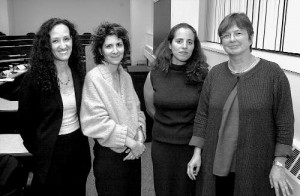
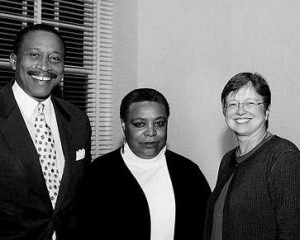
Lawyers You’ll Like: Professor Holly Maguigan
In our Lawyers You’ll Like series we’re joined by Professor Holly Maguigan, Professor of Clinical Law at the New York University School of Law, where she teaches Comparative Criminal Justice Clinic: Focus on Domestic Violence and Evidence. Professor Maguigan is an expert on the criminal trials of battered women. Her research and teaching is interdisciplinary. Professor Maguigan is a member of the Family Violence Prevention Fund’s National Advisory Committee on Cultural Considerations in Domestic Violence cases. She serves on the boards of directors of the National Clearinghouse for the Defense of Battered Women and the William Moses Kunstler Fund for Racial Justice. She is a past co-president of the Society of American Law Teachers, the largest membership organization of law professors in the U.S.
Professor Holly Maguigan:
- I was doing medieval history and I was at Berkeley. It was 1967 and Oakland stopped the draft.
- I got very interested in the anti-war politics.
- I hated lawyers. I really hated lawyers. They were boring. They talked about themselves all the time. They only had stories about their cases and how great they were and they would never post bail when people got arrested.
- The University of Pennsylvania in Philadelphia is where I stayed for 17 years.
- First I started out as a public defender. I loved being a public defender, it was the beginning and end of everything I hoped it would be.
- That’s where I met David Rudovsky and David Kairys. They were then defenders while I was a student.
- After they went out on their own, they kept inviting me to join them. I kept putting it off because I loved being a defender so much.
- In Philadelphia there was much more actual litigation, not just motion litigation there’s a lot of that here in New York City but actual trials.
- You had a sense, there was an analysis that people were doing life on the installment plan and you needed to do what you could to kick them loose any particular time.
- It was a community in its own odd way and I found it difficult to leave it.
- I was doing major felonies within a couple of years.
- David Kairys was very focused on constitutional litigation and government misconduct. He did the Camden 28 which was a big draft resistance case.
- My interest was more into criminal defense.
- Grand juries (all over the country) convened to investigate the alleged transportation of Patty Hearst by the SLA from California where she had been captured.
- He was a killer. (Frank Rizzo) There was no question. More people died in police actions before or since.
- I don’t mean to suggest that all the police started out as homocidal. This was a situation which from the top down came the message if you’re a good cop then you’re going to take people out however you think you need to.
- I knew about race and class bias in the court room as much as a white woman who was middle class could know.
- I was just blown away by what happens when you add hatred of women to hatred of black people and hatred of poor people.
- Judges would go by me in the hall and say Maguigan, ahem, you didn’t give me anything this Christmas, not even one lousy bottle, you’re not getting any assignments.
- Judges would do things, like open the drawer in their chambers, and there would be wads of bills, and they’d let you know.
- I developed a specialty on women who kill men.
- In the early eighties a group in Philadelphia called Women Against Abuse began working and they did advocacy for battered women accused of crime and meant a huge difference.
- The battered women cases I was working on were quite consuming because people then didn’t know very much in how to try these cases.
- The judges expected you to plead insanity or guilty. Reasonable doubt was a consideration at sentencing not at trial.
- There were cases that did require teams. There was no question.
- I wanted to be in court. I wanted to be in the presence of that conflict between the authorities and regular people.
- I went to NYU where I taught in the criminal defense clinic for many years.
- To see students react to the great stories their clients have is just amazing.
- SALT (Society of American Law Teachers) is about who gets into law school, what they learn and who teaches them. It’s about access to justice. It’s about relating to law school as a place where you train people to do social justice. SALT’s focus is on students and teaching.
- Holly Maguigan to be honored by Society of American Law Teachers.
Guest – Professor Holly Maguigan teaches a criminal defense clinic and one in comparative criminal justice as well as a seminar in global public service lawyering and a course in evidence. She is an expert on the criminal trials of battered women. Her research and teaching are interdisciplinary. Of particular importance in her litigation and scholarship are the obstacles to fair trials experienced by people accused of crimes who are not part of the dominant culture. Professor Maguigan is a member of the Family Violence Prevention Fund’s National Advisory Committee on Cultural Considerations in Domestic Violence cases. She serves on the boards of directors of the National Clearinghouse for the Defense of Battered Women and the William Moses Kunstler Fund for Racial Justice. She is a past co-president of the Society of American Law Teachers, the largest membership organization of law professors in the U.S.
——————————————————————————-
Books From Law and Disorder Hosts
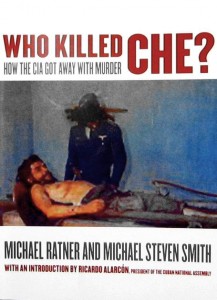
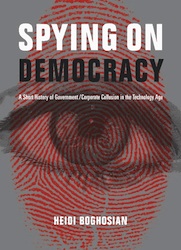
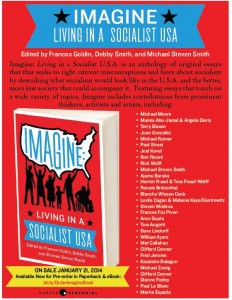
Civil Liberties, Criminalizing Dissent, Extraordinary Rendition, FBI Intrusion, Guantanamo, Habeas Corpus, Human Rights, Political Prisoner, Prison Industry, Supreme Court, Surveillance, Targeting Muslims, Torture, Truth to Power, War Resister
Podcast: Play in new window | Download
Updates:
- Judge Leon Rules That NSA Meta Data Collection Is Likely Unconstitutional.
- Michael Ratner: It Could Be The Deathknell For This Kind Of MetaData Collection
- Ed Snowden’s Response To Judge Leon’s Decision
- Ed Snowden’s Open Letter To The People Of Brasil
- A Christmas Card From Chelsea Manning
- Guantánamo Five: Military Commissions – Their Torture Memories Are . . Classified.
- First Commander Lenhardt: Guantánamo Should Never Have Opened
- American Studies Association Supports Boycott Of Israeli Academic Institutions
——
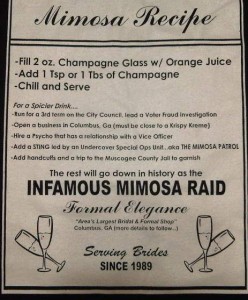

Over Policing of America: The Criminalization of Everyday Life
In his recent article titled Over Policing of America, attorney Chase Madar outlines a familiar narrative such as the militarization of police, stop and frisk, and how students get swept into the school to prison pipeline. The pattern is clear and who benefits is obvious in the list of over policing examples compiled by our returning guest, such as criminalizing immigration and how simple economic transactions are closely scrutinized by under-cover police.
Attorney Chase Madar:
- I’m hoping this new term will enter the national lingo; over-policing.
- What I wrote about is how the police paradigm has entered the DNA of social policy across the board in the United States in matters that a generation ago would not require police or prosecutors or criminal law, now suddenly do.
- That’s in education, in immigration, in family law, even how we regulate the economy.
- All of these spheres, domains of everyday life are increasingly regulated by police and prosecutors.
- A creeping police state. We need to take a very sobering look at how we’re governing ourselves and how criminal law is displacing and devouring all other kinds of social regulation.
- You see this more and more disciplinary matters in schools get outsourced to police departments.
- Police people are trained to respond to crimes, and to respond to everything as a crime. That’s the nature of police.
- When you send police into a school, the crime is going to sky rocket.
- Even the way we regulate our economy is suffering from an overdose of criminal law and police powers.
- What we have frequently is white collar work getting criminalized by a mare’s nest of criminal laws that are very complex, very difficult to understand.
- It’s not like we have a great financial system that was abused by a few bad apples. We have a really crappy system that’s legal because these people write the laws.
- Immigration law was mostly under the domain of administrative law with milder penalties, civil penalties.
- We’re kidding ourselves if we pretend that’s somehow aberrational.
- Although our political class seems incapable of doing anything constructive about it, they are very adept at channeling all fears about security in any sense into criminal law crack downs and ratcheting up the police state.
- Our incarceration rate is three times higher than the old East Germany.
- I think we need to switch very swiftly to alternative ways of social policy in holding our society together other than throwing cops and prosecutors at it.
Guest – Attorney Chase Madar , a TomDispatch regular and author of a new book, The Passion of Bradley Manning (OR Books). Madar tweets @ChMadar. He’s a contributor to the London Review of Books and Le Monde diplomatique and the author of a new book, The Passion of Bradley Manning (OR Books).
——————————————————-
Books From Law and Disorder Hosts


















